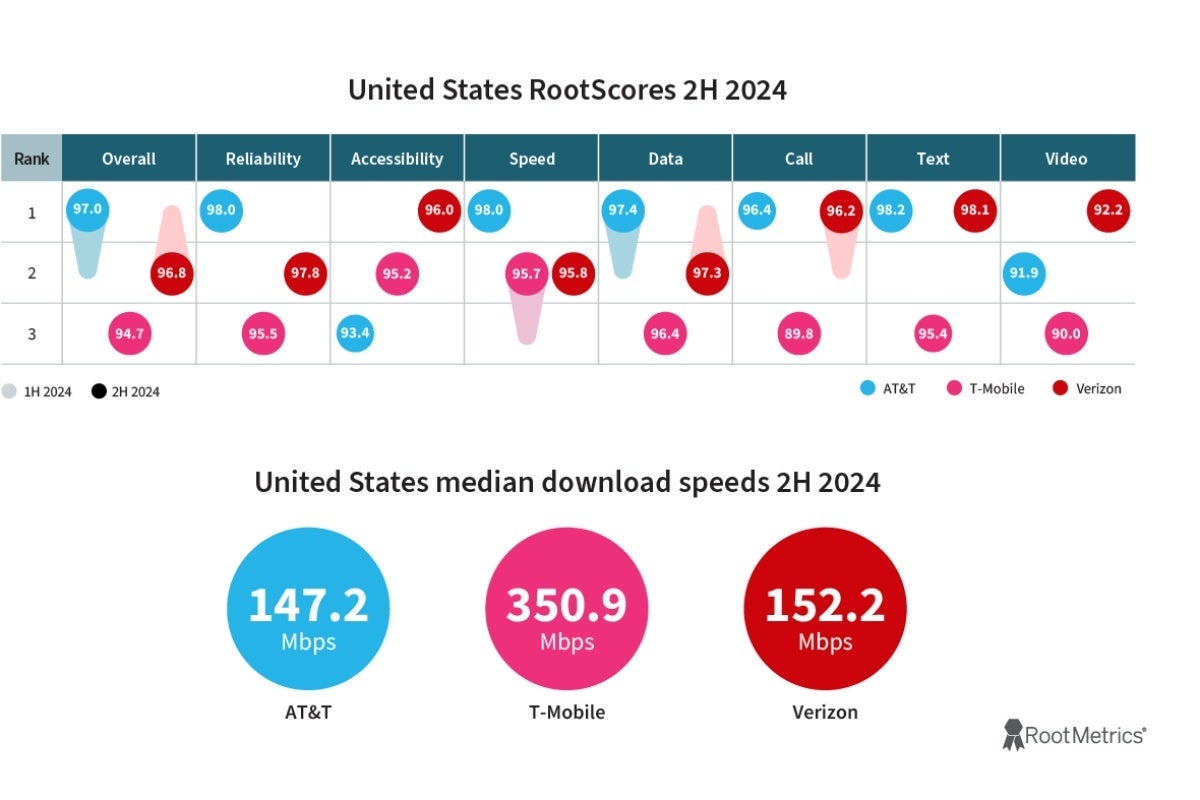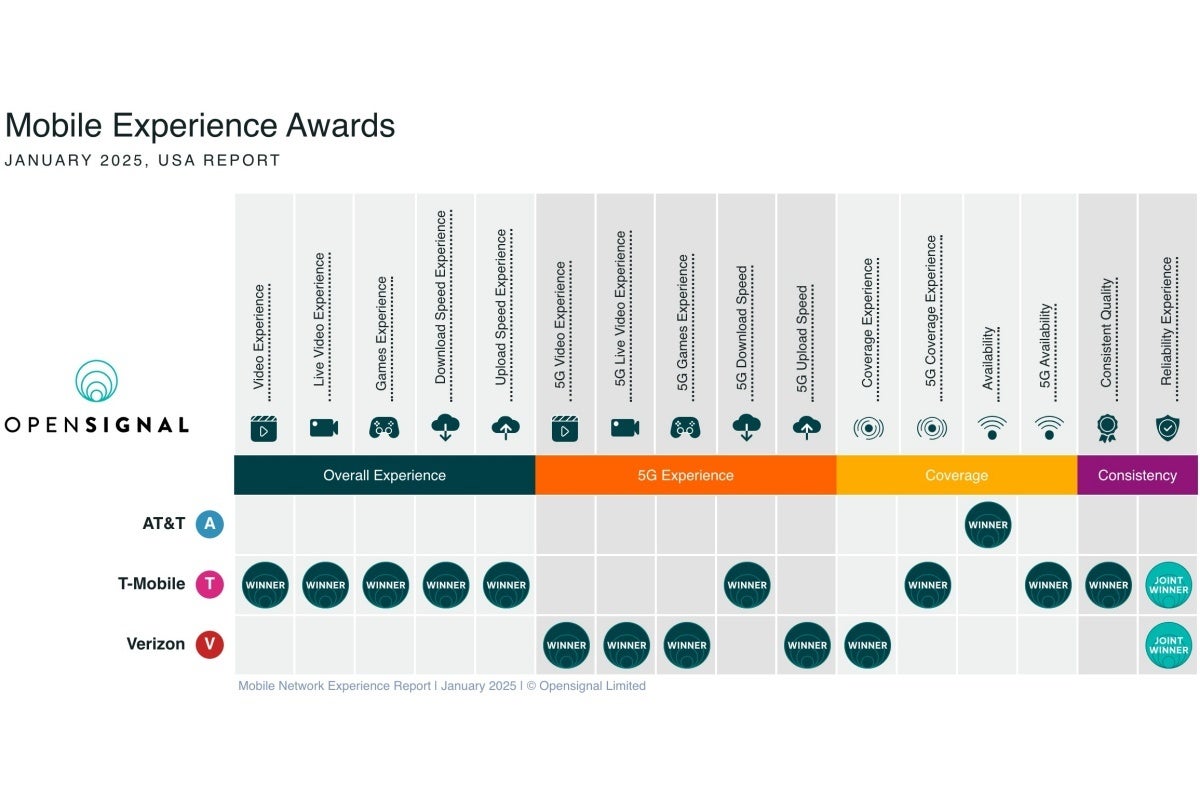Have you noticed how much noise T-Mobile tends to make about every… single… award the “Un-carrier” receives from analytics companies like Opensignal, RootMetrics, and Umlaut? If you’re not paying close enough attention to these types of things (which is probably true for most “regular” mobile users and casual tech industry followers), you might get the impression that Verizon and AT&T are never victorious in any network experience comparisons and battles against their arch-rival (and each other).But that’s not actually (entirely) true, and in fact, AT&T recently won a pretty big competition where T-Mobile essentially finished dead last among America’s top three wireless service providers, showing a lot of major weaknesses many of you are likely totally oblivious to. Don’t get me wrong, I’m very much part of the reason why you’re probably largely unaware of these reports ranking AT&T as the number one US carrier and T-Mobile as the number three, which is where today’s article comes in, aiming to put the spotlight on the strengths of the market underdog for a change.
When did T-Mobile become such a big deal?
Look, I’m old enough to remember the early days of the “Un-carrier” initiative, when this plucky little operator that AT&T had tried (and obviously failed) to acquire set out on its quest to revolutionize the US wireless industry as we knew it for so long.
I also recall how very few “experts” took Magenta’s decidedly unconventional publicity stunts seriously… until the subscriber base started growing and growing and growing. Fast-forward more than a decade and a Sprint takeover later, and ironically, T-Mo now leads Ma Bell in terms of customer figures, which mind you, are still rising at a healthy pace.But in many ways, it looks like T-Mobile may have become too big, too fast, falling in the same profit-obsessed traps it used to accuse “Dumb and Dumber” of intentionally setting up for their subscribers. Relegated to an underdog status, meanwhile, AT&T seems to be mounting a silent comeback of sorts, with not just steady network improvements, but T-Mobile-style deals as well.


Six gold medals for AT&T and zero for T-Mobile? Believe it or not, this is real life and not the dream of an AT&T exec.
This has actually been going on for a while now, but for some reason, AT&T has failed or avoided to tout its achievements very loudly. Well, I believe the carrier deserves great praise for its latest “RootMetrics US State of the Mobile Union” winnot to mention its evolution over time in these particular measurements.
That’s clearly a lot of (super-reliable) data that makes this victory incredibly significant for the carrier, not to mention very meaningful from the perspective of a lot of everyday mobile consumers across the country.
So, wait, is AT&T better than T-Mobile or not?
Well, in these measurements, it certainly is, especially when you consider its network reliability, speed, data, call, and text crowns compared to T-Mobile’s tally of… zero RootMetrics trophies.
But of course, this is not the be-all and end-all analytics firm out there, and I’d be incredibly superficial in my research if I simply ignored Opensignal’s equally scientific and equally reliable findings from just last month. In that study, based on billions (with a “b”) of daily tests performed between September and November 2024, T-Mo crushed its competition, taking home all five “overall experience” awards, as well as possibly the single most important “5G experience” title.
I’m definitely in no position to debate whose methodology makes more sense and which of these two companies you should trust more (as I personally find them both highly trustworthy), but what I can say is that even Opensignal’s measurements prove AT&T’s network is improving.


This may look like a disastrous report for AT&T, but it’s not… completely.
That’s easily noticeable if you look closely at the January 2024 and July 2024 reports and compare all the numbers with the ones from last month. Clearly, AT&T is doing something right from both speed and availability standpoints, making slow but steady progress as far as both its 5G signal and mobile network as a whole are concerned.Before you go there, by the way, I’d like to acknowledge the obvious fact that network performance tests don’t always align with real-life user experiences… which is precisely why I’m so reluctant to label AT&T as a better carrier than T-Mobile. Like it or not, much of the anecdotal evidence available on social media and places like Reddit suggests more T-Mo users are happy with their coverage, speeds, and prices (even after all those recent hikes) than AT&T or Verizon customers. And that’s something a lot of folks tend to value a whole lot more than some cold hard numbers.
View Full Bio
Adrian, a mobile technology enthusiast since the Nokia 3310 era, has been a dynamic presence in the tech journalism field, contributing to Android Authority, Digital Trends, and Pocketnow before joining PhoneArena in 2018. His expertise spans across various platforms, with a particular fondness for the diversity of the Android ecosystem. Despite the challenges of balancing full-time parenthood with his work, Adrian’s passion for tech trends, running, and movies keeps him energized. His commitment to mid-range smartphones has led to an eclectic collection of devices, saved from personal bankruptcy by his preference for ‘adequate’ over ‘overpriced’.




GIPHY App Key not set. Please check settings